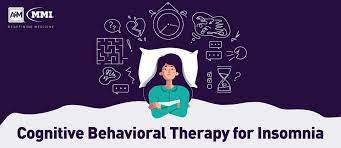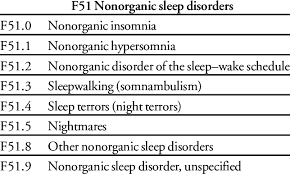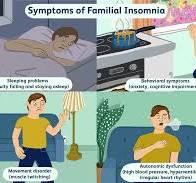Insomnia Therapy: A Path to Better Sleep
Insomnia, characterized by difficulty falling asleep or staying asleep, can have a significant impact on our overall well-being. It affects our mood, energy levels, and ability to function effectively throughout the day. If you find yourself struggling with insomnia, therapy can be a valuable tool in helping you regain control of your sleep patterns and achieve restful nights.
The Importance of Addressing Insomnia
Ignoring chronic insomnia can lead to a variety of negative consequences. Not only does it affect our physical health by weakening our immune system and increasing the risk of developing chronic conditions such as cardiovascular disease and diabetes, but it also takes a toll on our mental health.
Individuals experiencing insomnia often report feelings of irritability, anxiety, and depression. The lack of quality sleep impairs cognitive function, making it harder to concentrate, remember information, and make decisions. This can have detrimental effects on both personal and professional aspects of life.
The Role of Insomnia Therapy
Insomnia therapy aims to address the underlying causes of sleep disturbances through a combination of therapeutic techniques tailored to individual needs. It is important to seek therapy from a qualified professional who specializes in sleep disorders and understands the complexities of insomnia.
Therapists utilize evidence-based approaches that may include cognitive-behavioral therapy for insomnia (CBT-I), relaxation techniques, sleep hygiene education, and stress management strategies. These therapies help individuals identify and modify negative thought patterns related to sleep while promoting healthy habits that support better sleep quality.
The Benefits of Insomnia Therapy
Engaging in insomnia therapy can provide numerous benefits, including:
- Improved Sleep Quality: Therapy equips individuals with the tools to develop healthier sleep patterns, enabling them to fall asleep faster and stay asleep throughout the night.
- Reduced Dependence on Medication: By addressing the root causes of insomnia, therapy helps individuals reduce their reliance on sleep medications, which often come with side effects and can be habit-forming.
- Enhanced Mental Well-being: Therapy addresses the emotional toll of insomnia, helping individuals manage stress, anxiety, and depression that often accompany sleep disturbances.
- Increased Daytime Functioning: With improved sleep quality, individuals experience increased energy levels, improved concentration, and enhanced productivity during waking hours.
Seeking Insomnia Therapy
If you are struggling with insomnia and its impact on your daily life, consider seeking professional help. A qualified therapist can guide you through evidence-based therapies tailored to your specific needs. Remember that addressing insomnia is a journey that requires patience and commitment.
Take the first step towards better sleep and improved well-being by reaching out to a reputable therapist who specializes in insomnia therapy. You deserve restful nights and a revitalized life free from the burdens of chronic sleeplessness.
8 Effective Strategies for Overcoming Insomnia: A Guide to Better Sleep Therapy
- Establish a consistent sleep schedule by going to bed and waking up at the same time every day.
- Create a relaxing bedtime routine that includes activities like reading or taking a warm bath.
- Avoid caffeine, nicotine, and alcohol close to bedtime as they can disrupt your sleep patterns.
- Make sure your bedroom environment is conducive to sleep – cool, dark, quiet, and comfortable.
- Limit exposure to screens (TV, phone, computer) before bed as the blue light can interfere with sleep.
- Engage in regular exercise during the day but avoid intense workouts close to bedtime.
- Manage stress through relaxation techniques like deep breathing exercises or meditation.
- Consider cognitive behavioral therapy for insomnia (CBT-I) which focuses on changing negative thoughts and behaviors related to sleep.
Establish a consistent sleep schedule by going to bed and waking up at the same time every day.
Establishing a consistent sleep schedule is a crucial tip in insomnia therapy. By going to bed and waking up at the same time every day, you are training your body to follow a regular sleep-wake cycle. This helps regulate your internal body clock, making it easier to fall asleep and wake up naturally. Consistency in your sleep schedule reinforces healthy sleep patterns and promotes better overall sleep quality. Over time, this simple yet effective practice can have a significant positive impact on managing insomnia and improving your overall well-being.
Create a relaxing bedtime routine that includes activities like reading or taking a warm bath.
Creating a relaxing bedtime routine is an essential tip for those seeking insomnia therapy. By incorporating activities such as reading or taking a warm bath into your evening ritual, you can signal to your body and mind that it’s time to unwind and prepare for sleep. Reading a book can help shift your focus away from the stresses of the day, while a warm bath can promote relaxation by soothing tense muscles and calming the mind. Including these activities in your bedtime routine can create a peaceful atmosphere that promotes better sleep quality and aids in overcoming insomnia.
Avoid caffeine, nicotine, and alcohol close to bedtime as they can disrupt your sleep patterns.
To optimize the effectiveness of insomnia therapy, it is crucial to be mindful of your habits and avoid certain substances before bedtime. Caffeine, nicotine, and alcohol can significantly disrupt your sleep patterns and hinder your ability to achieve restful nights. Caffeine, found in coffee, tea, energy drinks, and chocolate, is a stimulant that can keep you awake and make it difficult to fall asleep. Nicotine, commonly found in cigarettes and vaping products, acts as a stimulant as well, leading to difficulty falling asleep and fragmented sleep. Alcohol may initially make you feel drowsy but can disrupt the later stages of sleep, resulting in poor sleep quality overall. By avoiding these substances close to bedtime, you can promote healthier sleep patterns and enhance the effectiveness of your insomnia therapy.
Make sure your bedroom environment is conducive to sleep – cool, dark, quiet, and comfortable.
Creating a bedroom environment that is conducive to sleep is crucial for overcoming insomnia. Make sure your sleep sanctuary is cool, dark, quiet, and comfortable. Keep the temperature of your bedroom on the cooler side, as a cooler environment promotes better sleep. Use blackout curtains or blinds to block out any external light sources that may interfere with your sleep. Minimize noise by using earplugs or a white noise machine to drown out any disruptive sounds. Additionally, invest in a comfortable mattress, pillows, and bedding that provide adequate support and comfort, allowing you to relax and drift off into a peaceful slumber. By optimizing your bedroom environment for sleep, you can create the ideal conditions for restorative rest and combat insomnia effectively.
Limit exposure to screens (TV, phone, computer) before bed as the blue light can interfere with sleep.
To enhance the effectiveness of insomnia therapy, it is essential to limit exposure to screens such as TVs, phones, and computers before bedtime. The blue light emitted by these devices can disrupt our sleep patterns by suppressing the production of melatonin, the hormone that regulates sleep. By reducing screen time in the evening and opting for activities that promote relaxation instead, such as reading a book or practicing mindfulness, we can create an optimal environment for restful sleep. Making this small adjustment can significantly improve our ability to fall asleep and enjoy a more rejuvenating night’s rest.
Engage in regular exercise during the day but avoid intense workouts close to bedtime.
Engaging in regular exercise during the day can be beneficial for improving sleep quality and managing insomnia. However, it is important to avoid intense workouts close to bedtime. While exercise can help release tension and promote relaxation, vigorous physical activity before bed can stimulate the body and make it harder to fall asleep. Instead, aim to complete your workout at least a few hours before bedtime to allow your body and mind to wind down naturally, facilitating a smoother transition into a restful sleep. By incorporating regular exercise into your daily routine while being mindful of timing, you can optimize your sleep patterns and contribute to a more peaceful night’s rest.
Manage stress through relaxation techniques like deep breathing exercises or meditation.
Managing stress is a crucial aspect of insomnia therapy. Incorporating relaxation techniques such as deep breathing exercises or meditation can be highly beneficial in reducing stress levels and promoting better sleep. Deep breathing exercises help calm the mind and relax the body, allowing for a smoother transition into a restful state. Similarly, meditation practices provide a space for mental clarity and inner peace, helping to alleviate the anxieties that often contribute to insomnia. By incorporating these relaxation techniques into your daily routine, you can effectively manage stress and create an environment conducive to a good night’s sleep.
Consider cognitive behavioral therapy for insomnia (CBT-I) which focuses on changing negative thoughts and behaviors related to sleep.
Consider cognitive behavioral therapy for insomnia (CBT-I) as a valuable approach to address your sleep difficulties. CBT-I specifically targets negative thoughts and behaviors that contribute to insomnia, helping you develop healthier patterns and beliefs surrounding sleep. By working with a trained therapist, you can learn effective strategies to challenge and reframe negative thoughts, establish a consistent sleep routine, and implement relaxation techniques. CBT-I empowers you to take control of your sleep by addressing the underlying causes of insomnia, ultimately leading to improved sleep quality and overall well-being.



